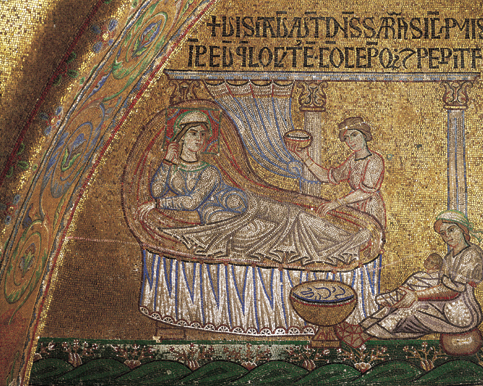Image Details

Byzantine Visual Resources, Copyright 1995, Dumbarton Oaks, Washington, DC
Two midwives attend Sarah as she reclines on her bed after giving birth to her only son, Isaac, at age 90. In this 13th-century mosaic from the church of San Marco, in Venice, one attendant offers Abraham’s wife a bowl of food while the second sits with the swaddled infant before a large basin of water. Neither midwife appears in the biblical story. But their inclusion here is not anachronistic: Midwives were an important component of a health care system closely linked with cults in ancient Israel, attending women during labor and assisting with post-natal care.
According to the biblical authors, fertility and health reflected God’s favor, while illness was a manifestation of God’s anger, suggests Hector Avalos. Only those physicians and midwives associated with the Israelite deity Yahweh were deemed legitimate by the Israelites. Disagreements over the ideal medical system may have played a major role in the development of Christianity, which, Avalos argues, did not always see disease as a sign of God’s displeasure.
